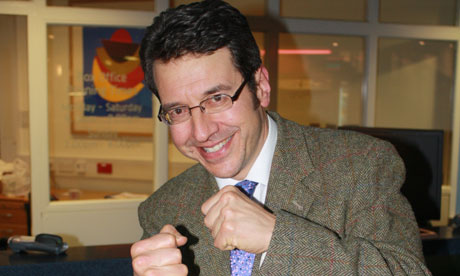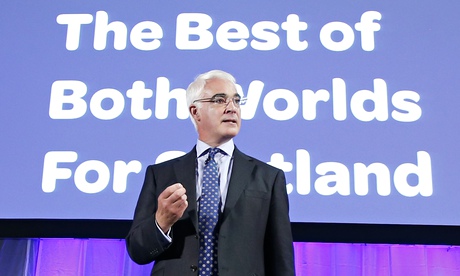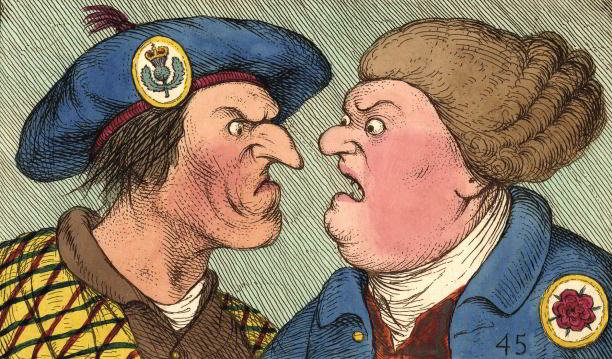THE WESTMINSTER ELITE OFFER TO SELL ENGLAND DOWN THE RIVER TO BUY OFF SCOTTISH INDEPENDENCE
Constitutionally there is no power to make such promises because no Parliament can bind its successors.
The promise to retain the Barnett Formula is shamelessly at the expense of England which loses £49 billion per year by the Barnett Formula.
Having different tax regimes in different parts of the UK (Wales and N Ireland will surely demand the same) will set one part of the UK against another. That is a recipe for perpetual conflict. The same would apply between English regions if the Westminster elite manages to break up England.
Here is the report:-
David Cameron, Ed Miliband and Nick Clegg sign joint historic promise which guarantees more devolved powers for Scotland and protection of NHS if we vote No
WESTMINSTER’S three main party leaders have signed up to a historic joint statement that was demanded by the Daily Record on behalf of the people of Scotland.
Three party leader’s promise to Scotland
The joint statement also rubbishes claims from the SNP that the Barnett Formula for calculating Scotland’s budget could be changed to leave Scots less money for public services.
It pledges: “Because of the continuation of the Barnett allocation for resources, and the powers of the Scottish Parliament to raise revenue, we can state categorically that the final say on how much is spent on the NHS will be a matter for the Scottish Parliament.”
Last night, Brown said more powers for Scotland are now “locked in” to a No vote on Thursday .
“Not even the most ardent and optimistic nationalist would claim that there is an overwhelming majority for separation, as there was for devolution.
“I believe that there is, however, a programme of change that can bring the people of Scotland together.
“I sense that people want change that can unite Scotland, rather than divide Scotland.
“They want to know that a No vote does not mean no change and instead seek guarantees of change, locked in and clear assurances that from September 19, the pace of change will not stall but speed up.
“But they want a promise of change they can trust – without the risks and uncertainties of an irreversible separation. I believe they are saying to us, ‘Give us the guarantees of change and with
these guarantees, we can vote for a strong Scottish Parliament within the UK’.
“We have heard important statements in Glasgow on Friday by Ed Miliband and Scottish Labour Party leader Johann Lamont and in Aberdeen by the Prime Minister.
“I believe that tonight, having listened to what the pro-devolution parties are saying, we can give these guarantees, that lock in change that is better, faster, fairer and safer than anything the SNP can offer through independence.
“So let us lock in three guarantees that will deliver the best deal for a stronger Scottish Parliament
within the United Kingdom. The guarantees that we now have pave the way to the future – a great
Scotland as a driving, successful and vibrant nation playing its full part in Great Britain.
“I believe what I am saying locks in a period of constitutional improvement and progress in preference to the risk-laden and dangerous change offered from an irreversible separation from which there is no going back.” Cameron backed the timetable for more powers in an emotional speech in Aberdeen yesterday .
He told more than 800 party members and activists that the UK is not a “perfect country” and pledged to change it.
The PM added: “The question is, how do you get that change?
“For me it’s simple. You don’t get the change you want by ripping your country apart. You don’t get change by undermining your economy and damaging your businesses and diminishing your place in the world.”
Cameron said the plans outlined by the pro-UK parties amounted to “real, concrete” change.
He added: “The status quo is gone. This campaign has swept it away. There is no going back to the way things were. A vote for No means real change.
“We have spelled that change out in practical terms, with a plan and a process.
“If we get a No vote, that will trigger a major, unprecedented programme of devolution, with additional powers for the Scottish Parliament – major new powers over tax, spending and welfare services.
“We have agreed a timetable for that stronger Scottish Parliament – a timetable to bring in the new powers that will go ahead if there is a No vote. A White Paper by November, put into draft legislation by January.
“This is a timetable that is now agreed by all the main political parties and set in stone and I am prepared to work with all the main parties to deliver this during 2015.
“So a No vote means faster, fairer, safer and better change.”
Cameron seemed close to tears as he made a direct appeal to Scots to vote No. He admitted that many people might be tempted by a Yes vote just to get rid of his Government. But he warned Scots not to “mix up the temporary and the permanent”.
With his voice breaking, Cameron added: “Don’t think, ‘I’m frustrated with politics right now, so I’ll walk out the door and never come back’.
“If you don’t like me, I won’t be here forever. If you don’t like this Government, it won’t last forever. But if you leave the UK – that will be forever.
“The different parts of the UK don’t always see eye-to-eye. Yes, we need change and we will deliver it.
“But to get that change, to get a brighter future, we don’t need to tear our country apart.”
He asked Scots to consider what would provide the best future for them and their family when they cast their vote.
Cameron said: “As you stand in the stillness of the polling booth, I hope you will ask yourself this – will my family and I truly be better off by going it alone? Will we really be more safe and secure?
“‘Do I really want to turn my back on the rest of Britain and why is it that so many people across the world are asking, ‘Why would Scotland want to do that? Why?’
“And if you don’t know the answer to these questions – then vote No.”
Promises
Guarantee One
New powers for the Scottish Parliament.
Holyrood will be strengthened with extensive new powers, on a timetable beginning on September 19, with legislation in 2015.
The Scottish Parliament will be a permanent and irreversible part of the British constitution.
Guarantee Two
The guarantee of fairness to Scotland.
The guarantee that the modern purpose of the Union is to ensure opportunity and security by pooling and sharing our resources equitably for our defence, prosperity and the social and economic welfare of every citizen, including through UK pensions and UK funding of healthcare.
Guarantee Three
The power to spend more on the NHS if that is Scottish people’s will.
The guarantee that with the continued Barnett allocation, based on need and with the power to raise its own funds, the final decisions on spending on public services in Scotland, including on the NHS, will be made by the Scottish Parliament.
The Scottish Parliament will have the last word on how much is spent on health. It will have the power to keep the NHS in public hands and the capacity to protect it.
Here is the full article:-http://www.dailyrecord.co.uk/news/politics/david-cameron-ed-miliband-nick-4265992










